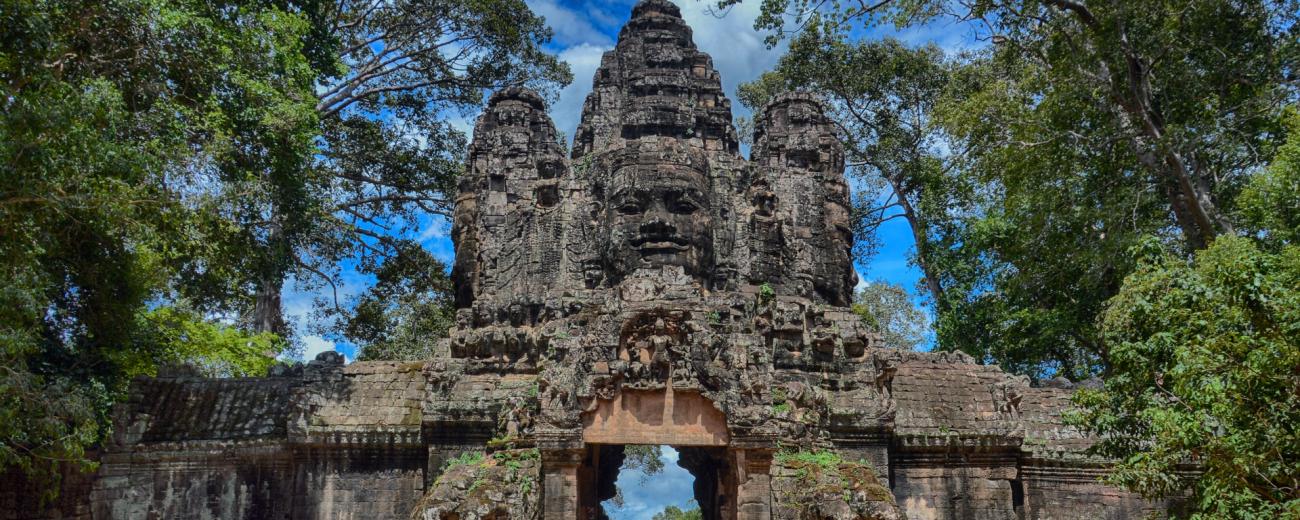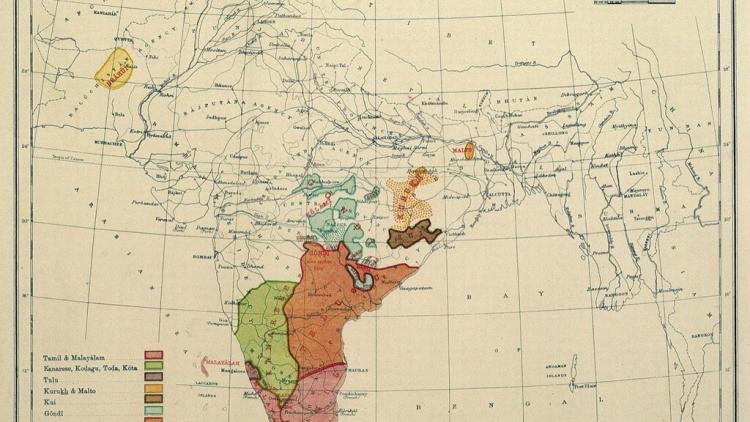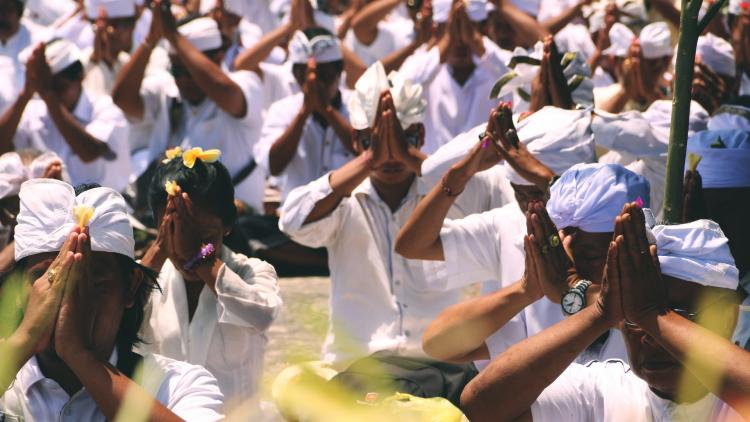MA History


Key information
- Start date
- Duration
- 1
- Start of programme
- September
- Attendance mode
- Full Time
- Location
- SOAS on Campus
- Fees
-
Home student fees: £12,220 per year
Overseas student fees: £25,320 per yearPlease note that fees go up each year.
See postgraduate fees for further details. - Course code
- V1S6
- Entry requirements
-
Afghanistan: Qualifications (Bachelor equivalency): Master's degree
Equivalent to 2:ii: 80% or 3.3/4.0
-
Argentina: Qualifications (Bachelor equivalency): Titulo / Grado de Licenciado
Equivalent to 2:ii: 7/10
-
Australia: Qualifications (Bachelor equivalency): Bachelor degree
Equivalent to 2:ii: 2:2 or Credit or 65%
-
Austria: Qualifications (Bachelor equivalency): Bachelor degree
Equivalent to 2:ii: 2.5/5.0 and overall Pass (Bestanden)
-
Bahrain: Qualifications (Bachelor equivalency): Bachelor degree
Equivalent to 2:ii: 75% or GPA 3.0/4.0
-
Bangladesh: Qualifications (Bachelor equivalency): Bachelor’s from Bangladesh University of Engineering and Technology or Master's degree
Equivalent to 2:ii: 60% or GPA 3.0/4.0
-
Belgium: Qualifications (Bachelor equivalency): Licentiaat or Licencié
Equivalent to 2:ii: 13/20 or 65%
-
Botswana: Qualifications (Bachelor equivalency): Bachelor degree (5-year) or Master's from University of Botswana
Equivalent to 2:ii: GPA 3.5/5.0 or 65% or B- or Good
-
Brazil: Qualifications (Bachelor equivalency): Título de Bacharel / Título de Licenciado (4-year)
Equivalent to 2:ii: 7/10 or 70%
-
Brunei: Qualifications (Bachelor equivalency): Bachelor degree
Equivalent to 2:ii: Lower Second Class Honours with 50% overall
-
Bulgaria: Qualifications (Bachelor equivalency): Bachelor degree
Equivalent to 2:ii: 4.3/6
-
Cameroon: Qualifications (Bachelor equivalency): Diplôme d'Ingénieur/ Diplôme d'Études Supérieures de Commerce (5-year)
Equivalent to 2:ii: 12-13 assez bien (fair); 70-74; or B+
-
Canada: Qualifications (Bachelor equivalency): Bachelor degree
Equivalent to 2:ii: GPA 3.0/4.0 or 74-77% or overall B
-
China Qualifications (Bachelor equivalency): Bachelor degree (4-year)
Equivalent to 2:ii:
73% or 2.6/4.0 (C9 unis)
75% or 2.8/4.0 (Double First unis)
80% or 3.25/4.0 (all other unis) -
Colombia: Qualifications (Bachelor equivalency): Licenciado / Titulo (4-year)
Equivalent to 2:ii: 3.5/5.0
-
Croatia: Qualifications (Bachelor equivalency): Baccalaureus / Baccalaurea (Bachelor degree)
Equivalent to 2:ii: Overall score 3/5
-
Cyprus: Qualifications (Bachelor equivalency): Bachelor degree
Equivalent to 2:ii: 6.5/10
-
Czech Republic: Qualifications (Bachelor equivalency): Bachelor degree (180 ECTS)
Equivalent to 2:ii: 1.75/4.0 or High C 'dobre’ (good)
Information for prospective students from the Czech Republic
-
Denmark: Qualifications (Bachelor equivalency): Bachelor degree
Equivalent to 2:ii: 7/12 or 8/13 or grade C
-
Egypt: Qualifications (Bachelor equivalency): Bachelor degree
Equivalent to 2:ii: 70% or 3.0/4.0
-
Estonia: Qualifications (Bachelor equivalency): Bakalaurusekraad / University Specialist's Diploma / Professional Higher Education Diploma
Equivalent to 2:ii: 4.0/5.0
-
Finland: Qualifications (Bachelor equivalency): Bachelor / Kandidaatti / Kandidat (180 ECTS credits)
Equivalent to 2:ii: 3/5 or 2/3
-
France: Qualifications (Bachelor equivalency): Licence or Diplôme from a grande école
Equivalent to 2:ii: 11.5 out 20
-
Gambia: Qualifications (Bachelor equivalency): Master's degree (2-year)
Equivalent to 2:ii: GPA 3.0/4.3 or 64% or B
-
Germany: Qualifications (Bachelor equivalency): Bachelor degree (180 ECTS)
Equivalent to 2:ii: 2.6/5
-
Ghana: Qualifications (Bachelor equivalency): Bachelor degree
Equivalent to 2:ii: 2:2 (Second Class Lower Division) or GPA 3.25/5.0 or 60%
-
Greece: Qualifications (Bachelor equivalency): Bachelor degree
Equivalent to 2:ii: 6.50/10
-
Hong Kong: Qualifications (Bachelor equivalency): Bachelor degree
Equivalent to 2:ii: Upper second class or GPA 2.7/4.0 or 75% or B Minus
-
Hungary: Qualifications (Bachelor equivalency): Bachelor (Alapfokozat) or Diploma (Egyetemi Oklevél)
Equivalent to 2:ii: 3.5/5.0
-
Iceland: Qualifications (Bachelor equivalency): Bachelor degree (Baccalaureus or Bakkalarprof)
Equivalent to 2:ii: 7.0 out of 10
-
India: Qualifications (Bachelor equivalency): Bachelor degree
Equivalent to 2:ii: CGPA: 55-60% or 5.5/10 - 6.0/10
-
Iraq: Qualifications (Bachelor equivalency): Bachelor degree (Licence/Karshani)
Equivalent to 2:ii: 0.7
-
Israel: Qualifications (Bachelor equivalency): Bachelor degree
Equivalent to 2:ii: 70% or C+
-
Italy: Qualifications (Bachelor equivalency): Laurea (180 ECTS)
Equivalent to 2:ii: 100/110
-
Japan: Qualifications (Bachelor equivalency): Bachelor degree
Equivalent to 2:ii: 70% or C+ or 3.0
-
Jordan: Qualifications (Bachelor equivalency): Bachelor degree
Equivalent to 2:ii: 3.0/4.0 or 70%
-
Kazakhstan: Qualifications (Bachelor equivalency): Bachelors (Bakalavr Diplomi) or Specialist Diploma
Equivalent to 2:ii: GPA 3.0/4.0 or GPA 4.0/5.0 or B
-
Kenya: Qualifications (Bachelor equivalency): Bachelor degree
Equivalent to 2:ii: 2:2 or 60%
-
Kuwait: Qualifications (Bachelor equivalency): Bachelor degree
Equivalent to 2:ii: 3.0/
-
Latvia: Qualifications (Bachelor equivalency): Bakalaura Diploms (Bachelor's) or Profesionālā Bakalaura Diploms
Equivalent to 2:ii: 7/10
-
Lebanon: Qualifications (Bachelor equivalency): Bachelor degree / Licence
Equivalent to 2:ii: 75% or Grade B-/C+ or GPA 2.8/4.0 or 14/20
-
Liberia: Qualifications (Bachelor equivalency): Master's degree
Equivalent to 2:ii: 75% or 2.8/4.0
-
Libya: Qualifications (Bachelor equivalency): Bachelor Degree from selected institution
Equivalent to 2:ii: 75% or GPA 3.0/4.0
-
Lithuania: Qualifications (Bachelor equivalency): Bachelors / Bakalauro (180 ECTS)
Equivalent to 2:ii: 7.5/10
-
Malawi: Qualifications (Bachelor equivalency): Master's degree
Equivalent to 2:ii: 70% or GPA 3.0/4.0
-
Malaysia: Qualifications (Bachelor equivalency): Bachelor degree
Equivalent to 2:ii: 3.0/4.0 or B (Class 2 Division 2)
-
Malta: Qualifications (Bachelor equivalency): Bachelor degree
Equivalent to 2:ii: Lower Second Class with 65% or Category IIB
-
Mexico: Qualifications (Bachelor equivalency): Titulo de Licenciado
Equivalent to 2:ii: 8/10 or 80%
-
Morocco: Qualifications (Bachelor equivalency): Licence / Licence d'Etudes Fondamentales / Licence Professionnelle
Equivalent to 2:ii: 13/20
-
Nepal: Qualifications (Bachelor equivalency): Master's degree / Bachelor degree (4-year)
Equivalent to 2:ii: 70%
-
Netherlands: Qualifications (Bachelor equivalency): Bachelor degree
Equivalent to 2:ii: 6.5/10 or GPA 3.0
-
New Zealand: Qualifications (Bachelor equivalency): Bachelor degree
Equivalent to 2:ii: Majority of credited modules B- or above
-
Nigeria: Qualifications (Bachelor equivalency): Bachelor degree
Equivalent to 2:ii: Lower Second Class or 55% or GPA 3.0/5.0 or 2.5/4.0 or 4.0/7.0
-
Norway: Qualifications (Bachelor equivalency): Bachelors / Bachelorgrad (180 ECTS) or Candidatus /a magisterii
Equivalent to 2:ii: Grade C (with at least 80 ECTS) at grade B or 3.2
-
Oman: Qualifications (Bachelor equivalency): Bachelor degree
Equivalent to 2:ii: 3.0/4.0
-
Pakistan: Qualifications (Bachelor equivalency): Bachelor (4-year) / Master's from HEC recognised institution
Equivalent to 2:ii: CGPA 2.7 or 65%
-
Philippines: Qualifications (Bachelor equivalency): Master’s from recognised institution or Centre of Excellence / Bachelor from prestigious institution or Centre of Excellence
Equivalent to 2:ii:
Prestigous Universities: GPA 3.3/4.0 or 1.75/5.0 or Grade B or 83%
Recognised Universities: GPA 3.5/4.0 or 2.0/5.0 or Grade B or 87% -
Poland: Qualifications (Bachelor equivalency): Licencjat or Inżynier (3-year)
Equivalent to 2:ii: 4.25/5
-
Portugal: Qualifications (Bachelor equivalency): Licenciado (180 ECTS)
Equivalent to 2:ii: 15/20
-
Qatar: Qualifications (Bachelor equivalency): Bachelor degree
Equivalent to 2:ii: GPA 3.0/4.0 or 3.5/5.0 or 70% or 7/10
-
Romania: Qualifications (Bachelor equivalency): Diplomă de Licenţă / Diplomă de Inginer / Diplomă de Urbanist Diplomat
Equivalent to 2:ii: 8/10
-
Russia: Qualifications (Bachelor equivalency): Diplom Bakalavra or Specialist Diploma
Equivalent to 2:ii: 3.8/5.0
-
Rwanda: Qualifications (Bachelor equivalency): Bachelor (4-year)
Equivalent to 2:ii: Lower Second Class Honours or 65-69% or 14/20
-
Saudi Arabia: Qualifications (Bachelor equivalency): Bachelor degree
Equivalent to 2:ii: GPA of 3.0/4.0 or 3.5/5.0 or overall 70%
-
Singapore: Qualifications (Bachelor equivalency): Bachelor degree
Equivalent to 2:ii: CAP 3.5/5.0 or 3.0/4.0
-
Slovakia: Qualifications (Bachelor equivalency): Bakalár / Bachelor
Equivalent to 2:ii: 70% or 2.0 overall or C
-
South Africa: Qualifications (Bachelor equivalency): Bachelor (4-year)
Equivalent to 2:ii: 60%
-
South Korea: Qualifications (Bachelor equivalency): Bachelor degree
Equivalent to 2:ii: GPA 2.7/4.0 or 3.0/4.3 or 3.3/4.5
-
Spain: Qualifications (Bachelor equivalency): Título de Grado / Título de Licenciado / Título de Ingeniero / Titulo de Arquitecto
Equivalent to 2:ii: 6.5/10 or GPA 1.75/4.0
-
Sri Lanka: Qualifications (Bachelor equivalency): Bachelor Special Degree or Professional Degree (4-year)
Equivalent to 2:ii: 55% or 2:2 or GPA 3.0/4.0
-
Sudan: Qualifications (Bachelor equivalency): Bachelor (5-year)
Equivalent to 2:ii: 65%+ or B
-
Sweden: Qualifications (Bachelor equivalency): Bachelor degree / Kandidatexamen / Yrkesexamen
Equivalent to 2:ii: B (90 credits) and C (90 credits) or Very Good (70 credits) and Good (110 Credits) or C (180 credits)
-
Switzerland: Qualifications (Bachelor equivalency): Diplom / Diplôme / Lizentiat / Staatsdiplom / Diplôme d’Etat
Equivalent to 2:ii: Overall 4.5/6 or 7/10 or 2.5/5
-
Syria: Qualifications (Bachelor equivalency): Licence / al-ijaza-fi / Bachelor
Equivalent to 2:ii: 70%+ or 'Good'
-
Taiwan: Qualifications (Bachelor equivalency): Bachelor degree
Equivalent to 2:ii: 68-70% or GPA 2.8/4.0-3.0/4.0
-
Thailand: Qualifications (Bachelor equivalency): Bachelor degree
Equivalent to 2:ii: GPA 3.0/4.0
-
Tunisia: Qualifications (Bachelor equivalency): Diplôme National d'Ingénieur / Diplôme National d'Architecture / Licence / Maîtrise
Equivalent to 2:ii: 12 out of 20
-
Turkey: Qualifications (Bachelor equivalency): Lisans Diplomasi
Equivalent to 2:ii: GPA 2.6/4 from the top universities and 3.0/4 from all others
-
Uganda: Qualifications (Bachelor equivalency): Bachelor degree
Equivalent to 2:ii: 2:2 (Lower Second) or B or GPA 3.0/5.0
-
Ukraine: Qualifications (Bachelor equivalency): Bachelor degree or Specialist Diploma
Equivalent to 2:ii: 8/12 or 3.8/5
-
United Arab Emirates: Qualifications (Bachelor equivalency): Bachelor degree
Equivalent to 2:ii: GPA 3.0/4.0 or 3.2/5.0
Information for prospective students from the United Arab Emirates
-
United States of America: Qualifications (Bachelor equivalency): Bachelor degree
Equivalent to 2:ii: GPA 3.0/4.0
-
Vietnam: Qualifications (Bachelor equivalency): Bachelor degree (4-year)
Equivalent to 2:ii: Overall score of 6.5/10
-
Yemen: Qualifications (Bachelor equivalency): Master's degree
Equivalent to 2:ii: Overall 'Good' (71-77%) or Aden University 80-83% (or 3.0/4.0)
-
Zambia: Qualifications (Bachelor equivalency): Master's degree
Equivalent to 2:ii: 65% or B or Credit or GPA 1.7/2.5 or 3.3/5.0
-
Zimbabwe: Qualifications (Bachelor equivalency): Bachelor degree
Equivalent to 2:ii: 2:2 or 65%
-
We will consider all applications with a 2:2 (or international equivalent) or higher in a social science or humanities subject. In addition to degree classification we take into account other elements of the application such as supporting statement. References are optional, but can help build a stronger application if you fall below the 2:2 requirement or have non-traditional qualifications.
See international entry requirements and English language requirements
Course overview
SOAS’s MA History programme is one of the very few Master-level programmes in History in the UK, which focuses study of the discipline through Asia, Africa, and the Middle East. With its high concentration of expertise of these regions, the programme offers an unrivalled breadth of courses on these regions’ respective as well as interconnected histories. In addition to offering regional and global/transnational expertise, the program also provides a sound training in the theory and methodology in history writing and historical research.?
SOAS’s MA History programme is one of the few UK Master-level degrees in History which focuses on the histories of Asia, Africa, and the Middle East.
With its high concentration of expertise of these regions, the SOAS MA History programme offers an unrivalled breadth of courses on these regions’ respective as well as interconnected histories. In addition to offering regional and global/transnational expertise, the SOAS MA History programme also provides a rich training in the theory and methodology in history-writing and historical research.
Why study MA History at SOAS?
- Our department is ranked 12th in the UK for History (QS World University Rankings 2023)
- SOAS is ranked 6th in the UK for employability (QS World University Rankings 2023)
- Our History research environment is entirely world-leading/internationally excellent (REF 2021)
- 83.3% of our History impact case studies were world-leading/internationally excellent (REF 2021)
- 71.2% of our History research outputs were world-leading/internationally excellent (REF 2021)
- In the 2023 Postgraduate Research Experience Survey, History scored above sector in the following categories: research culture, community, research skills, and professional development
Structure
Learn a language as part of this programme
Degree programmes at SOAS - including this one - can include language courses in more than forty African and Asian languages. It is SOAS students’ command of an African or Asian language which sets SOAS apart from other universities.
Students in this programme take 180 credits of taught courses plus a 10,000 word dissertation with a detailed 2,500 word dissertation plan worth 10% of this mark. The proximity to the School of many archive depositories and records offices, including its own archival collection as well as the British Library, greatly enhances the potential for dissertation work.
Contact hours
Students must take 180 credits in total, comprised of 120 taught credits and a 60-credit dissertation (10,000 words with a detailed 2,500-word dissertation plan worth 10% of the mark for this module).
Important notice
The information on the website reflects the intended programme structure against the given academic session. The modules are indicative options of the content students can expect and are/have been previously taught as part of these programmes.
However, this information is published a long time in advance of enrolment and module content and availability is subject to change.
Compulsory
Core
Guided options List A
Guided options List B
Teaching and learning
Teaching is generally by informal lectures and seminar discussions. At Masters level there is particular emphasis on seminar work where students may be expected to make full-scale presentations for units they take.
In addition to their studies on the MA programme, students at SOAS are able to participate in a wide range of research seminars, lectures and conferences that regularly take place in the School and in the University of London.
Dissertation
The 10,000-word Dissertation with a detailed 2,500 word dissertation plan worth 10% of this mark on an approved topic linked with one of the taught courses.
Programme learning outcomes
Knowledge
- Factual knowledge about the histories of Asian and African societies, the ways they interacted with each other and other world regions of the world, and the major historical forces that shaped our contemporary world.
- Familiarity with a variety of different approaches to historical research and current scholarly debates, and, on that basis, the ability to formulate a valuable research question.
- How to locate materials and use research resources (particularly research library catalogues, archival hand lists, and digital resources), assess data and evidence critically from manuscripts, printed, and digital sources, and solve problems of conflicting sources and conflicting interpretations.
- Language skills appropriate to chosen region and field of study (recommended).
Intellectual (thinking) skills
- Students will be able to synthesize different kinds of information, become precise and cautious in their assessment of evidence and understand what the different types of historical sources can and cannot tell us.
- Students will be able to question interpretations, however authoritative, maintain an open- minded attitude to interpretations that challenge older interpretations, and analyse and reassess evidence and research questions for themselves.
- Students will be able to think critically about the nature of the historical discipline, its methodology, historiography, and openness for interdisciplinary approaches.
- Students will be able to reflect about the potential of historical research on non- Western societies and civilizations for the advancement of the historical discipline and human civilization in general.
Subject-based practical skills
- Effective writing and referencing skills, attention to detail and accuracy in presentation.
- Effective oral presentation of seminar papers, articulation of ideas, and constructive participation in seminar discussions.
- Ability to retrieve, sift and select information from a variety of sources, including relevant professional databases, effective note-taking, record keeping and planning of projects.
- Ability to formulate research questions and design an independent research project, including the use of primary sources.
- In the MA History and Intensive Language program, to acquire/develop skills in a language to Effective Operational Proficiency level, i.e., being able to communicate in written and spoken medium in a contemporary language
Transferable skills
- Critical thinking.
- Ability to communicate effectively in oral and written forms.
- Information gathering skills from conventional and electronic sources.Effective time-management, writing to word limits, and meeting deadlines.
SOAS Library
SOAS Library is one of the world's most important academic libraries for the study of Africa, Asia and the Middle East, attracting scholars from all over the world. The Library houses over 1.2 million volumes, together with significant archival holdings, special collections and a growing network of electronic resources.
Scholarships
Employment
A postgraduate degree from the History department at SOAS provides its students with an understanding of the world, giving them specialised historical knowledge and understanding of cultural sensibilities of a region. Postgraduate students are equipped with the expertise to continue in research as well as the skills needed to enable them to find professional careers in the private and public sectors.
Postgraduate students leave SOAS with a portfolio of widely transferable skills which employers seek, including familiarity with methods of research; the competence to manage large quantities of information; the ability to select and organise information and analytical skills.
Graduates have gone on to work for a range of organisations including:
- Afghan Aid
- Amnesty International
- Church of England
- Dar Al Hekma College
- Department For Transport
- Högskolan Dalarna
- Home Office - UKBA
- Hongik University, South Korea
- MoD
- Dutch National Council for Culture
- Savannah Publications
- The Jewish Chronicle
- The Royal Institute of International Affairs
- World Youth Service Society Japan
Find out about our Careers Service.








